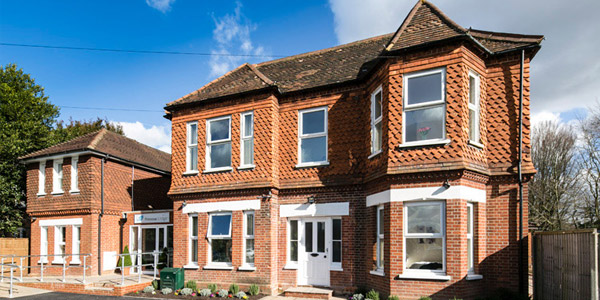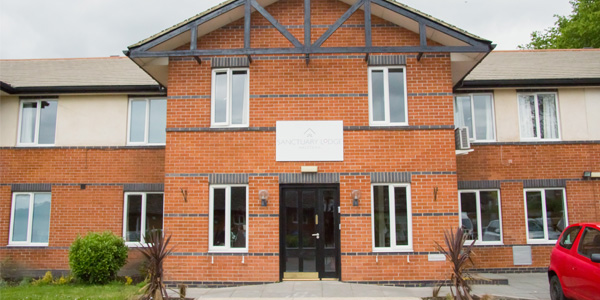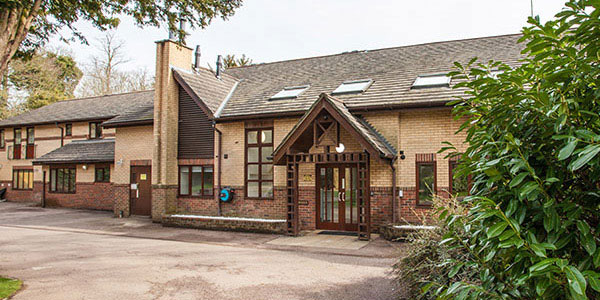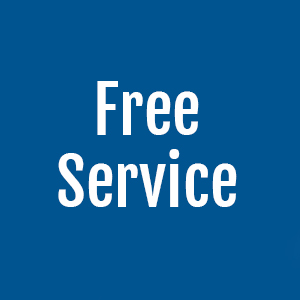Alcohol & Drug Rehab in Croydon
Alcoholism rehab and drug rehab treatment services including medical detox and therapeutic behavioural rehabilitation are available in The London Borough of Croydon, which is a Borough in the South London region of greater London. The Croydon Borough is considered part of the outer London area of England. If you need help for addiction based on postcode, then please call our team of experienced Admissions Team who will be able to guide you around local detox and rehab treatment options down to the actual district you live in.
The Croydon Borough postcodes include BR, CR, SE, SW. Croydon is the main town in the Croydon Borough and is generally split into Croydon South, Croydon Central and Croydon North. If you are suffering from substance dependence there is detoxification for alcoholism and drug rehab treatment facilities in and around Croydon which help addicts overcome active alcohol dependency and drug addiction. We also medically manage drug intoxication and alcohol withdrawal at Care Quality Commission detox and rehab facilities we recommend.

At Primrose Lodge we genuinely care that our patients make a full recovery …
- Private
- Holistic Treatment
- Onsite gym
- Residential
Featured Rehabs
Sanctuary Lodge is a state of the art detox and rehabilitation facility, se…
Liberty House Clinic is a fully furbished detox and rehabilitation facility…
Banbury Lodge is a private UKAT rehab facility based in Banbury, Oxfordshir…
-
- 12 Step
- Group Setting
- Free
- Outpatient
-
- 12 Step
- Group Setting
- Free
- Outpatient
-
- 12 Step
- Group Setting
- Free
- Outpatient
-
- Eating Disorder
- Group Setting
- Free
- Outpatient
-
- Eating Disorder
- Group Setting
- Free
- Outpatient
-
- 12 Step
- Group Setting
- Free
- Outpatient
-
- 12 Step
- Group Setting
- Free
- Outpatient
-
- 12 Step
- Group Setting
- Free
- Outpatient
- Load More
Drug & Alcohol Rehab Services in London
- A
- B
- C
- D
- E
- F
- G
- H
- I
- J
- K
- L
- M
- N
- O
- P
- Q
- R
- S
- T
- U
- V
- W
- X
- Y
- Z
What Is Rehab?

Residential rehabilitation – or “rehab” – is the name given both to treatment provided to an addict at a dedicated facility, and to the facility itself. Rehab offers a compelling combination of detoxification (“detox”) and therapy, addressing both the immediate pressures of physical dependency and the longer-term challenges of psychological addiction.
This combination – delivered in one facility in a peaceful, secure, pleasant and confidential setting – means rehab is widely considered to be the most effective approach to the treatment of addiction in terms of its ability to provide a platform for permanent recovery. Indeed, so successful has the model proven that in mainstream culture “rehab” has become synonymous with addiction treatment.
How Can I Get Someone into Rehab?
Thousands of people die from substance abuse each year in the UK, while countless more fall victim to accidents and acts of violence in which alcohol and/or drugs are a major factor. As a result, it is by no means excessive to say that addiction treatment saves lives; by extension, it is also crucial to recognise that the sooner an addict is willing to recognise and admit to their condition, and reach out for help, the sooner that help can be provided and the greater the chances of success.
Although NHS addiction treatment services are typically very good, waiting times can be extremely lengthy due to the very high demand for services and the limited number of places available (especially at resource-intensive sites like rehabs). If you or someone close to you need help urgently, such a wait may be catastrophic, so do not hesitate: every day matters. Call 0800 024 1455 today to speak with an addiction specialist and discuss some of the private options available to you.
Advantages of Private Rehab
As mentioned above, rehab provides a peaceful, secluded, secure and confidential setting in which an addict can focus fully on their recovery without the distractions and temptations of the outside world. Upon entering rehab, an addict will embark on detox, assisted by highly experienced medical personnel there to assure that withdrawal is as safe and as comfortable as possible (which may involve the provision of medication).
After detox, the addict will engage therapy – both one-to-one and group – aimed at addressing the root causes of their addiction, as well as at constructing defence mechanisms against relapse; they will also receive bespoke dietary and fitness plans and may benefit from an array of other resources available.
Following a stay in any quality rehab, a patient will receive free aftercare (for up to a year): it is important to remember that recovery is not complete the moment a patient walks out of the facility but is ongoing and may not be a smooth and easy process. Aftercare can help reduce the risk of relapse and provide the recovering addict with vital support at critical junctures.
What Does Rehab Cost in London?
The cost of private rehab in or near Croydon can vary significantly by treatment programme and depending on a variety of optional extras are selected. As a rough guide, standard costs range from between £5,500 and £11,000 per month, though the cheapest rehab treatment can start from as little as £834 per week. For more details, call 0800 804 4755.
Croydon NHS Addiction Treatment Options
If you feel that private rehab is currently not an option for you for reasons of cost, or if you do not feel that you are able to spend the required time away from family and/or work obligations, do not despair: various NHS and charity resources can be found in Croydon and across London which can help you combat your addiction. Consult your GP about which of these resources may be available to you and would be most appropriate for your specific situation.
Advantages of NHS Treatment
It should not come as a surprise that the primary advantage of NHS treatment in many people’s eyes is a financial one: NHS services are, of course, free at the point of use, whereas private rehab comes at a cost (though compared with the cost of sustaining addiction, you may feel this to be an extremely valuable – not to mention life-saving – investment).
The NHS operates in every corner of the country, and services are therefore very accessible geographically compared with some rehab facilities. Another advantage offered by NHS services is that standards are generally high – though quality does vary by location and, again, waiting times can be extremely lengthy.
Addiction Support Groups
A number of organisations exist across the country to provide assistance to recovering addicts, and some of these operate a support group model. Support groups are groups of individuals who are themselves recovering addicts – some only recently free from addiction, while others may have been clean for many years.
Here, they come together at regular meetings to give and take mutual support: sharing their stories of addiction, giving advice on how to resist relapse, showing solidarity and sympathy when group members are struggling, and providing the simple companionship which can mean so much in times of difficulty and loneliness.
Support group attendees can come from all walks of life, brought together by their shared experience of addiction and recovery; typically, attendance at support groups is free and the only qualification for participation is a commitment to leading a life free of substance abuse.
The most famous support group organisation, and the one on which most others are modelled, is Alcoholics Anonymous (AA) which was founded in 1935 and runs on a 12-step programme of personal and spiritual development, with one of the steps being a recognition that a higher power – such as God – can assist with an alcoholic’s recovery.
Narcotics Anonymous (NA), founded in 1953 and based directly upon the AA model, is the second-largest support group organisation worldwide and caters to recovering drug addicts specifically. In a similar vein, but supporting those recovering from addictions to specific substances, are Cocaine Anonymous (CA), Heroin Anonymous (HA), Marijuana Anonymous (MA) and Crystal Meth Anonymous (CMA), all of which operate 12-step programmes.
To find information on meetings in or near Croydon, see the relevant websites: Alcoholics Anonymous
, Narcotics Anonymous; Cocaine Anonymous; Heroin Anonymous; Marijuana Anonymous; Crystal Meth Anonymous.
Types of Counselling

Individual counselling can be engaged in either following attendance at rehab or other treatment as a supplementary aid to recovery – or potentially as a means of managing an addiction prior to engagement in a full treatment programme – and is especially useful for those who currently do not have the ability to take the time out necessary for an in-depth treatment programme such as rehab.
Private addiction counsellors operate like regular psychotherapists, and counsellors offering a variety of different therapy models can be found across the country; they are usually seen by private appointment – typically on a weekly basis – and charge a fee per appointment. While some counsellors make themselves available for emergency access, most limit access to working hours.
Reaching London’s Borough of Croydon
Croydon is found in South London; it’s one of the most southern areas in the English metropolis. It borders several other boroughs (Bromley, Lambeth, Merton, and Sutton) Croydon’s southern border, alongside those of Bromley, Sutton, Kingston upon Thames alongside others, forms London’s southern border.
If you’re travelling by car, you can use the larger roads available for drivers who come to Croydon: the A323, the A22, Brighton Road, and London Road. With so many options, it’s easy to manoeuvre through the over 20 wards in Croydon – Addington, Addiscombe, Ashburton, Beddington, Broad Green, Coombe, Coulsdon, Croydon, Crystal Palace, Forestdale, Hamsey Green, Kenley, Monks Orchard, New Addington, Norbury, Norwood New Town, Old Coulsdon, Pollards Hill, Purley, Purley Oaks, Roundshaw , Sanderstead, Selhurst, Selsdon, Shirley, South Croydon, South Norwood, Thornton Heath, Upper Norwood, Upper Shirley, Waddon, Woodcote, Woodside, and Whyteleafe. Keep in mind some of these are shared with the neighbouring boroughs, so different elections, council decisions and others may influence the areas.
The London Underground does not extend to the areal; the nearest station is Balham on the Northern Line. District line and Wimbledon are accessible via the Tramlink services. If you are coming from far and will arrive after a flight, make sure you land at the nearest airport – London Gatwick unless you can use the City Airport which, however, has very limited services.
If you have some time to spend before your admission, or are afraid not much can be done in Croydon while you’re having your rehab-centred holistic outings, keep in mind the following local areas of interest: the Croydon Aiport Centre, Boxpark Croydon, Wandle Park Croydon, as well as the Crystal Palace FC stadium.
How to Get to Primrose Lodge from Croydon
Primrose Lodge is a unique rehab clinic located in the historic town of Guildford, Surrey. Boasting a private gymnasium, purpose-built treatment rooms and en suite bedrooms, this attractive, spacious building is the perfect getaway for those battling addiction, while Primrose Lodge’s highly experienced staff are on hand 24/7 to ensure patients’ safety and comfort. Integrated treatment programmes designed to address the root causes of addiction are provided in a tranquil and confidential environment in which patients can focus wholly upon their recovery.
To get to Worplesdon from Croydon, head south on the A212 and take the A232 to the A236. Take, in turn, Bramley Hill, Haling Park Road, Pampisford Road and Russell Hill Road before joining the A23. Take the M23, then at junction 8 join the M25 towards Heathrow. At junction 10 exit onto the A3; take the A3100 onto the A320, and finally join the A322/Worplesdon Road.
Primrose Lodge
Perry Hill
Worplesdon
Guildford
Surrey
GU3 3RY
Croydon
Addiction Helper offers Addiction & Rehab services in Croydon, London, a Town located in England. Croydon is based within London.
Wards for local government elections in Croydon also include Fairfield (Croydon ward), Addiscombe West (ward), and Broad Green (ward). National parliamentary constituencies of the Town of Croydon include Croydon South (UK Parliament constituency), Croydon North (UK Parliament constituency), and Croydon Central (UK Parliament constituency). The Coat Of Arms Of The London Borough Of Croydon is the emblem of the Town of Croydon in England. The Town of Croydon additionally includes villages such as Addington, London its administrative area.
Croydon contains a number of settlements including Waddon, Shirley, South Norwood, South Croydon, Monks Orchard, Selhurst, and Selsdon. Broad Green, Purley, New Addington, Addington, and Upper Norwood are also part of Addiction Helper’s Addiction & Rehab service area in the Town of Croydon. Other service areas covered by Addiction Helper within Croydon, England include Coombe, Forestdale, Thornton Heath, Russell Hill, and Coulsdon, in addition to Croydon’s outer urban areas Woodcote, Kenley, Duppas Hill, Great North Wood, and Woodside. Last in order but nevertheless important, Addiction Helper’s Addiction & Rehab services cover the wider Croydon area including Roundshaw, Crystal Palace, Norbury, Addiscombe, and Ashburton. The small communities of Sanderstead, Norwood New Town, Spring Park, and Shirley Oaks are located within Croydon, London. Croydon is within the Cr0 area. Notable educational establishments in Croydon include Croydon High School, and Royal Russell School. Croydon Central Library helps preserves Croydon’s history. Additional educational institutions within Croydon are Museum of Croydon, and Croydon Natural History & Scientific Society. Croydon University Hospital catchment areas includes Croydon. Heavers Meadow, Ashburton Park, and Mitcham Common are popular with Croydon residents and known through out England. Integral major roads in Croydon include the A213 road, and A222 road. Croydon Flyover, Surrey Street Market, and North End are intrinsic to Croydon transport infastructure. The Town of Croydon is fringed by London Borough of Sutton, and Hackbridge to the East. Bordering the Town of Croydon and to the south South Norwood, Sydenham, and Mitcham are immediately adjacent.
Croydon northern boundaries are bordered by Burgess Hill Places to see in Croydon include Croydon Cenotaph, Shirley Windmill, and Croydon Palace. Croydon Iconic Buildings include Croydon Airport, and Ruskin House. Croydon encompasses notable heritage assets including Boxpark, Croydon Town Hall, Fairfield and College Green, Ruskin House, and Centrale (Croydon). A number of companies including Oxygen Studios, House of Reeves, and Telewest in the Town of Croydon. The main shopping centre for Croydon is Surrey Street Market





